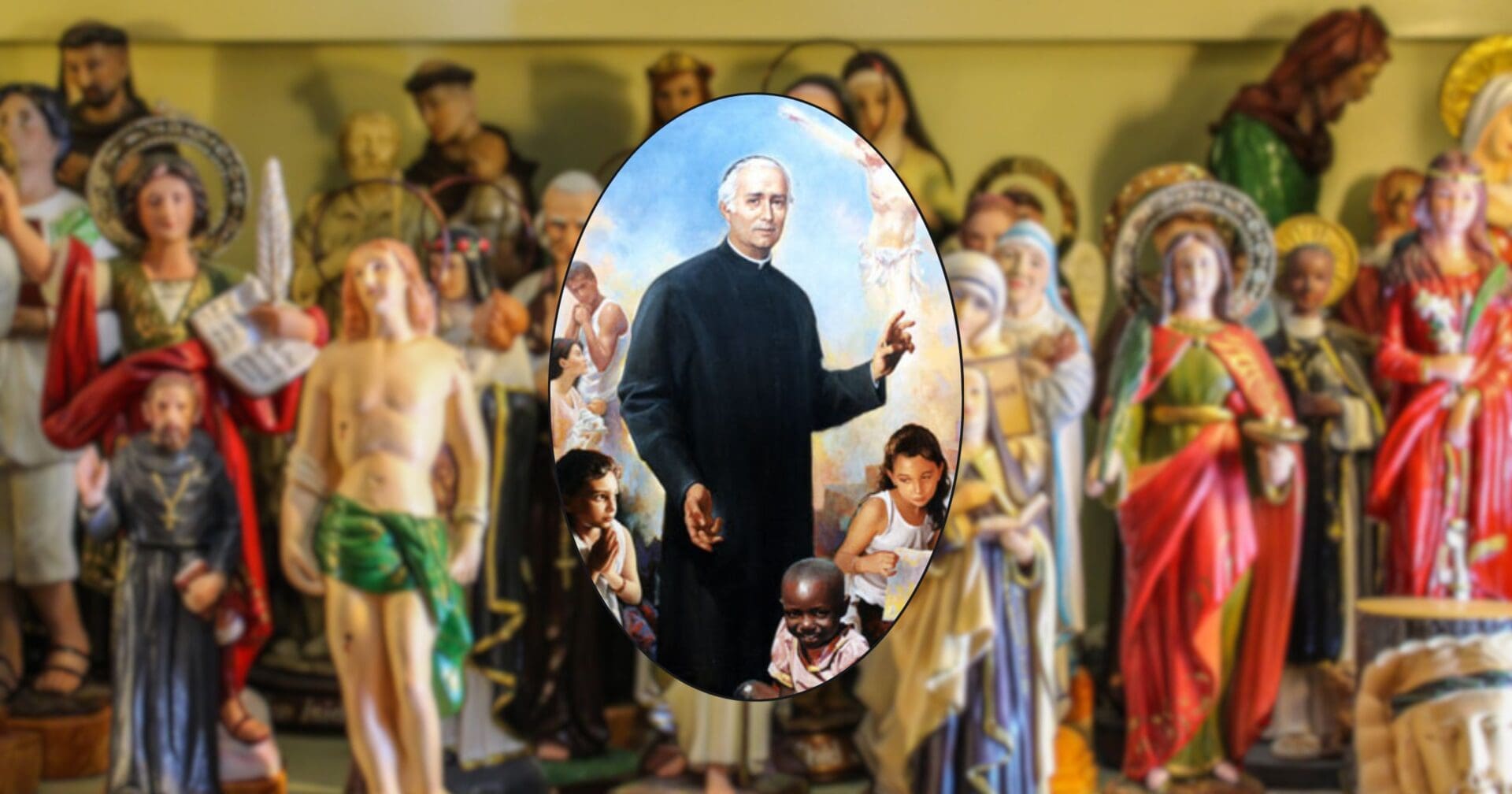Born into a noble and pious family on December 1, 1831, in Pagani, Salerno, Italy, Thomas Maria Fusco was the seventh of eight children. His parents, Dr. Antonio Fusco, a pharmacist, and Stella Giordano, instilled in him strong Christian values and compassion for the needy from an early age. Baptized on his birth day at the parish of S. Felice e Corpo di Cristo, young Tommaso faced adversity early on with the death of his mother in 1837 due to cholera, followed by his father’s passing in 1841. His education and upbringing were then overseen by his uncle, Fr Giuseppe, a primary school teacher.
Inspired by the canonization of St. Alphonsus Mary de’ Liguori in 1839, Tommaso aspired towards the priesthood from a young age. He entered the diocesan seminary of Nocera in 1847, where his brother Raffaele had also studied. Tommaso was confirmed in 1851 and ordained a priest on December 22, 1855, by Bishop Agnello Giuseppe D’Auria.
Throughout his life, Tommaso was profoundly influenced by the losses of his loved ones, fostering a deep devotion to the Patient Christ and the Blessed Sorrowful Mother. He dedicated himself to the education and spiritual formation of youth, establishing a morning school in his home and leading evening prayers at his parish church.
In 1857, Fusco joined the Congregation of the Missionaries of Nocera, under the title of St Vincent de Paul, embarking on a mission across Southern Italy. By 1860, he became the chaplain at the Shrine of Our Lady of Carmel in Pagani, enriching the community with Catholic associations, and in 1862, he founded a school of moral theology and the “(Priestly) Society of the Catholic Apostolate” for popular missions, receiving Pope Pius IX’s approval in 1874.
Moved by the plight of an orphan girl, Fusco founded the Congregation of the “Daughters of Charity of the Most Precious Blood” on January 6, 1873, establishing an orphanage for poor girls. His foundation quickly gained the Pope’s blessing.
Fusco’s later years were marked by extensive apostolic work, founding numerous houses and orphanages. Despite facing slander and persecution, he remained steadfast in his faith and dedication to the service of God and the needy, embodying patience and virtue until his death from liver disease on February 24, 1891, at the age of 59.
His life, characterized by indomitable faith, ardent charity, and a tireless dedication to the Redemptive Blood for the salvation of souls, left a lasting impact. Recognized for his heroic Christian virtues, the cause for Tommaso Maria Fusco’s beatification began in 1955, culminating with the recognition of a miraculous healing through his intercession in 1964, leading to his beatification by Pope John Paul II, who hailed him as a model of holiness for priests and the faithful alike.
Photo credit: Immaculate / Shutterstock.com | FaleBot via Wikimedia Commmons















St. Tommaso Maria Fusco, help us.
How To Make the Most of Your Time Between Online Jobs From Home Introduction Sign up for job alerts and be first in line for the latest jobs pm that match your profile. Earn Daily $650.
Here go…. https://Earn7Daily7.blogspot.com
[…] post Blessed Thomas Maria Fusco appeared first on […]
Blessed Thomas Maria Fusco, pray for us!
Blessed Thomas Maria Fusco was an Apostle of Charity of the Most Precious Blood, a friend of boys and girls and young people and attentive to every kind of poverty and human and spiritual misery.
Blessed Thomas Maria Fusco, pray for us!